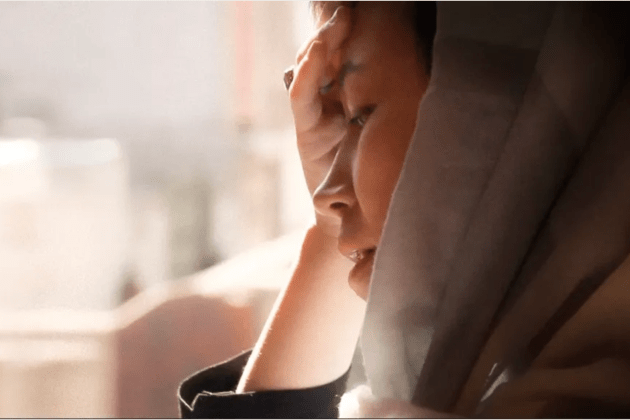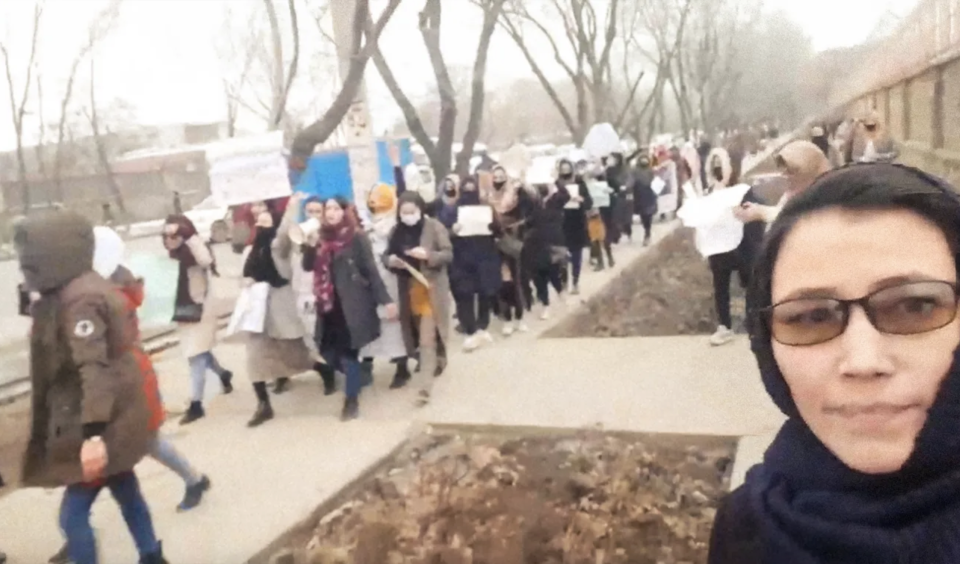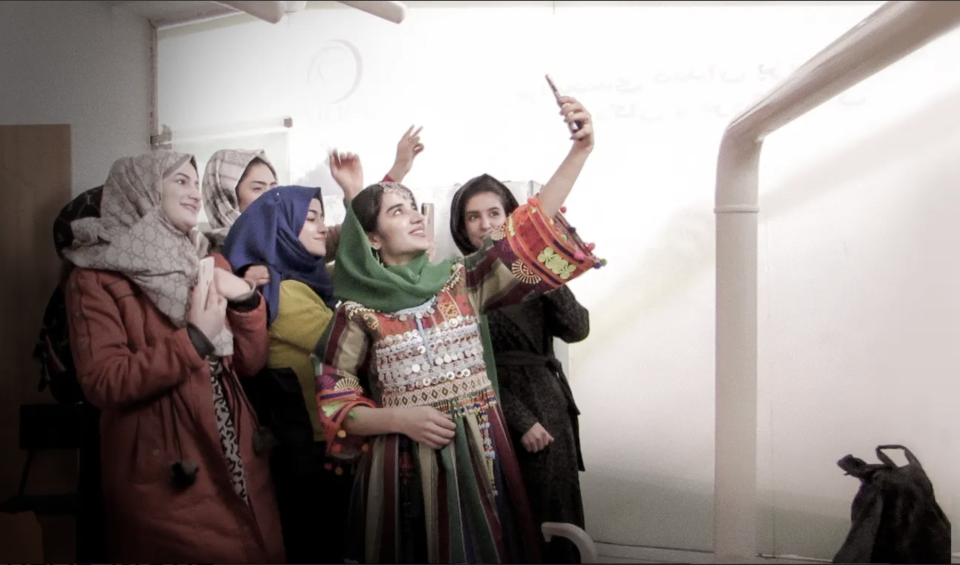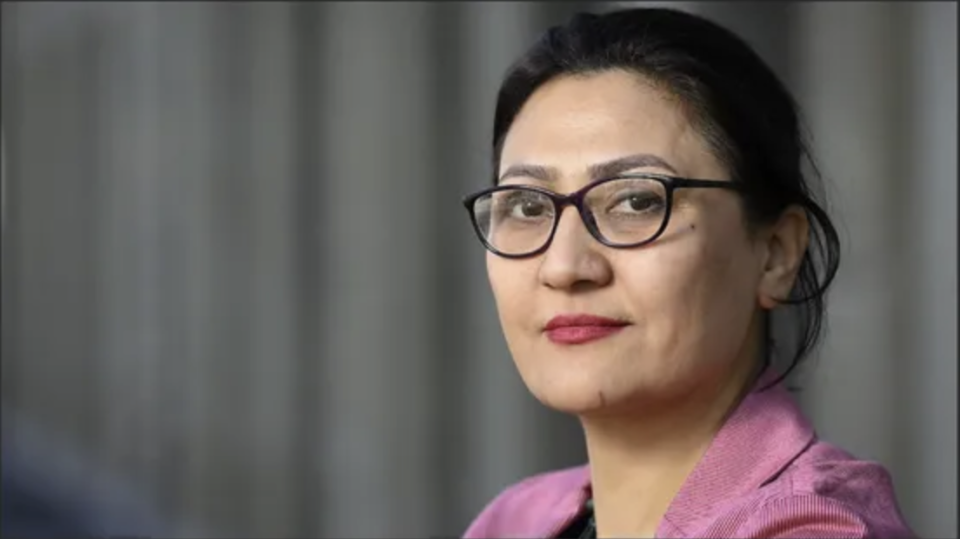‘Bread And Roses’ Review: Cannes Doc Directed By Sahra Mani, Produced By Jennifer Lawrence, Shows Bleak Reality For Afghan Women Under Taliban

Late last month the U.N. Security Council voted unanimously to condemn the Taliban for systematically depriving Afghan women of their rights, demanding the country’s fundamentalist Islamic rulers provide “full, equal, meaningful and safe participation of women and girls” in Afghan society.
It was an acknowledgement of how quickly the situation for women and girls has deteriorated since the Taliban retook control of Kabul in August 2021, following the departure of U.S. military forces. The dire reality for the distaff population of Afghanistan becomes heartbreakingly clear in the documentary Bread and Roses, which premiered today at the Cannes Film Festival. The film is directed by Afghan native Sahra Mani and produced by actress Jennifer Lawrence, Justine Ciarrochi, and Mani.
More from Deadline

“Do not forget about Afghan women!” Dr. Zahra Mohammadi implored the audience at the Salle Agnès Varda in Cannes as she, Mani and Lawrence introduced the film. Before the Taliban takeover, Dr. Mohammadi operated a thriving dental practice in Kabul, but soon after the Taliban return to power she was ordered to remove her name from her own clinic. Women across the country were told they could no longer go out in public without a male escort; schools for girls and women were shut down.
The documentary includes cell phone video of brave women who defied the stay-at-home order and protested in the streets, calling on authorities to re-open schools. “Down with the terrorists!” shout some of the demonstrators, clearly meaning the Taliban. Disturbing videos show the brutal reaction of security forces who attack protestors and what appear to be Western journalists trying to cover the demonstrations.

In another cell phone video, a man off camera is heard threatening to summarily execute women protestors. One of the women tells him flatly, “You’re desperate for power over us.” That sums up the grim situation in Afghanistan, where the Taliban, guided by an extreme interpretation of the Quran, is obsessed with subjugating more than half of its people.
In what could be considered a ray of hope – perhaps a very faint one – Bread and Roses shows safe houses where some women are offered shelter, at least temporarily, as they try to get to Pakistan to escape the suffocation of their freedoms. And some men of a more enlightened nature make stray appearances, including Zahra’s devoted husband, Omid, and the husband of another key woman in the film who notes succinctly at one point, “In Afghanistan, women are slaves.”
One of the most harrowing cell phone videos comes from an anguished woman who speaks into the camera, saying through tears, “I have a Talib living in my house.” That’s a reference to her husband, whom she says has administered terrible beatings on her, worse even than what she would experience were she to venture unescorted into the streets.

The film unfolds in a fractured narrative, jumping between several different women who are faced with the prospect of having to flee their homeland. It coheres around Zahra, a charismatic woman who grew up in a conservative family (at one point her father is heard telling her he strongly disapproves of her growing activism and that as a result of her high profile he can no longer go out in public himself. He sounds like the embodiment of male privilege and self-pity). Despite the disapproval of her family and great risk involved, Zahra convenes meetings in her dental office where women discuss their plight and write out protest slogans to display during public demonstrations. In one scene, Zahra tells her young nieces that if they are questioned about her they should deny knowing their aunt.
The film rises to an even greater level of tension when Zahra is arrested by authorities, leaving family and friends wondering if they will ever see her alive. She is later released (the film doesn’t explain under what circumstances), but she recounts torture that she and other detainees endured while in detention. She says one woman with whom she was incarcerated had been beaten so badly Zahra didn’t recognize her, only realizing later that they had known each other before.

Mani, the filmmaker, directed an earlier film about women in Afghanistan, A Thousand Girls Like Me, released in 2018 before the final Taliban onslaught. During his introduction of the cast, Cannes chief Thierry Frémaux noted that Mani is living in exile in Iran (a place not exactly known for treasuring women’s rights either, but one where women have taken a leading role demonstrating for an end to domination of society by Islamist clerics). Frémaux saluted Mani for creating a film that he said serves as both a contemporary witness of Afghanistan, and a witness for history.

Lawrence and Ciarrocchi produced the film through their banner Excellent Cadaver, and it’s the company’s first documentary. Bread and Roses is eligible for the L’Oeil d’or (Golden Eye) award, which goes to the top documentary in the Cannes Film Festival. The L’Oeil d’or jury attended the premiere screening (earning a shoutout from Frémaux), and afterwards the jury president, filmmaker Kirsten Johnson, could be seen wiping tears from her eyes.
Whether a documentary about women in Afghanistan can effect any change in the country seems too much to hope for. But at the very least, as Dr. Mohammadi urged, it will help ensure their ordeal is not forgotten.
Title: Bread and Roses
Festival: Cannes (Special Screenings)
Director: Sahra Mani
Running time: 90 min.
Sales agent: LBI Entertainment
Best of Deadline
Cannes Film Festival Photos Day 7: Alicia Vikander, Jude Law, 'Club Zero' & More
Hollywood & Media Deaths In 2023: Photo Gallery & Obituaries
Sign up for Deadline's Newsletter. For the latest news, follow us on Facebook, Twitter, and Instagram.


